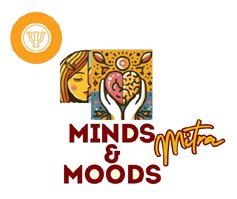Building Bridges: A Guide to Social Skills Training 🤝
Social skills are the foundational tools we use to interact and communicate with others. For many, these skills are learned naturally, but for others, navigating social situations can feel confusing, overwhelming, and isolating. Social skills training (SST) is a form of behavioral therapy that provides individuals with the structured guidance and tools needed to improve their social competence and build stronger relationships. This type of counselling is beneficial for both children and adults and is often a key component of a broader treatment plan.
A Trusted Professional in Nagpur: Rrimi Bodalkar
If you’re in Nagpur and seeking expert guidance, Rrimi Bodalkar, a Sr. Psychotherapist / Mental Health Counsellor, is a highly qualified professional. With her M.A. Psychology (Counselling) and PGDMH (Clinical), she offers a comprehensive and compassionate approach to mental health. Her certifications in Psychometric Analysis & Learning Style Assessment provide a solid foundation for a wide range of services. Specializing in CBT, REBT & DBT, Rrimi Bodalkar is well-equipped to help clients with various issues, from depression therapy and anger management counselling to life transition counselling and executive coaching. She is particularly adept at helping individuals develop personal skills, making her an excellent choice for those seeking to build their confidence or improve their social interactions.
When to Seek Help: Symptoms & Causes
Identifying a need for social skills training can be the first step toward significant personal growth. The symptoms that may indicate a person could benefit from SST include:
- Social Anxiety: Feeling intense fear or discomfort in social situations, often leading to avoidance. This can be addressed through a combination of SST and Cognitive Behavioral Therapy (CBT) or Rational Emotive Behavior Therapy (REBT).
- Communication Difficulties: Struggling with verbal and non-verbal cues, such as making appropriate eye contact, understanding body language, or maintaining a conversation.
- Interpersonal Challenges: Having a hard time making friends, resolving conflicts, or working effectively with others. This can impact professional and personal life, sometimes requiring relationship counselling or workplace stress counselling.
- Difficulty Understanding Social Norms: Misinterpreting social cues or being unaware of what is considered appropriate behavior in different settings.
The causes for these difficulties are varied. They can be rooted in mood disorders, ADHD, Autism spectrum evaluation (as social skills are often not intuitive for those on the spectrum), or past trauma that has made social interaction a source of fear. Additionally, a lack of early exposure or a history of negative thinking and low confidence can prevent a person from developing these skills.
The Procedure of Treatment
The procedure of treatment in social skills training is practical and evidence-based. It’s often conducted by a psychologist or mental health counsellor and can be done individually or in a group setting.
- Assessment: The process begins with a detailed evaluation to pinpoint specific social skill deficits. The therapist will identify the most challenging social interactions for the individual and establish clear, measurable goals. This can involve a Personality assessment or other Psychometric Analysis.
- Instruction & Modeling: The therapist explains the target social skill (e.g., how to start a conversation) and breaks it down into manageable steps. The therapist then models the behavior for the client.
- Role-Playing & Practice: This is a core component of SST. The client practices the new skill in a safe, controlled environment through role-playing. This allows them to apply what they’ve learned and build confidence without the pressure of a real-life situation.
- Feedback & Reinforcement: The therapist provides constructive feedback, offering praise for what was done well and gentle suggestions for improvement. This positive reinforcement encourages the client to continue practicing the new behavior.
- Homework: The client is given “homework” assignments to practice their new skills in real-world situations, helping to generalize the skills outside of the therapy room.
By learning and practicing these skills, individuals can improve their quality of life, strengthen relationships, and participate more fully in their communities.
Frequently Asked Questions (FAQ’s)
Q1: Is social skills training only for children? A: No, SST is for all age groups. While it’s commonly used with children, many adults benefit from it to improve their professional relationships (career counselling psychologist) or personal connections (marriage counselling, couple therapy).
Q2: Can social skills be learned at any age? A: Yes. Social skills are not innate; they are learned behaviors. With the right guidance and consistent practice, anyone can improve their social abilities, regardless of age.
Q3: Can SST help with public speaking anxiety? A: Absolutely. Social skills training often includes components related to verbal and non-verbal communication that are crucial for effective public speaking. It can be a direct form of public speaking anxiety treatment.
Q4: Is SST used for individuals with a specific diagnosis? A: While SST is often used as Support for special needs children and individuals with diagnoses like ADHD or autism, it’s also a valuable form of personal counselling for anyone who feels socially awkward or wishes to enhance their interpersonal skills.
Q5: What is the difference between social skills training and general counselling? A: General counselling can help you understand the why behind your social difficulties (e.g., past trauma or low self-esteem). Social skills training focuses more on the how, teaching you the specific, practical steps and behaviors to navigate social situations more effectively. The two approaches are often used together for a holistic treatment.

